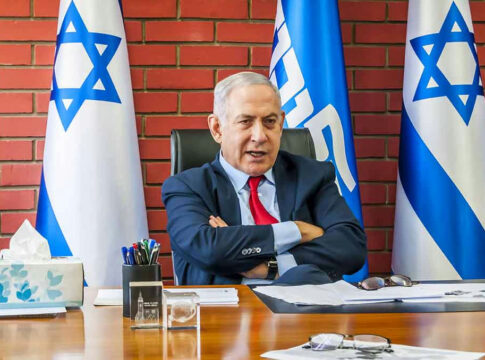Negotiations in Gaza reveal unexpected dynamics as Trump and Netanyahu navigate a complex peace plan.
Denials and Diplomacy
In recent developments, President Trump has firmly denied reports that he admonished Israeli Prime Minister Benjamin Netanyahu to stop being “f*cking negative” about the ongoing negotiations in Gaza. This denial comes amidst Axios reports suggesting Trump urged Netanyahu to “take the win” after Hamas tentatively agreed to release hostages as part of the US’s proposed 20-point peace plan. Trump insists Netanyahu has been supportive, contradicting reports of private tensions between the two leaders.
This video of Charlie Kirk saying that Netanyahu LET Oct 7 happen so he could stay in power has been removed from YouTube
He asks if there was a “stand down order” on Oct 7 (there was, the border was empty for hours).
They don’t want you to see this. pic.twitter.com/VIaEPWEriB
— ADAM (@AdameMedia) October 7, 2025
While Trump publicly maintains a positive stance towards Netanyahu, sources indicate underlying frustrations, especially concerning Netanyahu’s cautious public statements. Reports highlighted a tense phone call where Netanyahu’s reluctance to celebrate Hamas’s tentative agreement was met with Trump’s displeasure. This interplay reveals a complex layer of diplomatic maneuvering, where leaders must balance public optimism with private skepticism.
Progress Amidst Complexity
The Gaza peace talks, currently underway in Egypt, feature a diverse array of international participants. US envoy Steve Witkoff, Trump’s adviser Jared Kushner, and a Turkish delegation led by spy chief Ibrahim Kalin are among those involved. Despite the crowded negotiation table, there is cautious optimism. Top Hamas leader Taher al-Nunu expressed that mediators are working diligently to clear obstacles, fostering a hopeful atmosphere among all parties.
The discussions focus on a significant prisoner exchange, with both sides exchanging lists of captives. However, a broader resolution remains elusive. The future of Gaza, particularly the disarmament of Hamas and the cessation of hostilities, presents substantial challenges. Questions linger about whether these negotiations can yield a sustainable peace or if they merely offer temporary reprieve from conflict.
Challenges and Open Questions
The complexity of the situation is exacerbated by differing perspectives on the peace plan’s viability. While Trump expresses confidence in reaching a deal, analysts caution that core issues remain unresolved. The Egyptians and Qataris have signaled that the current proposal may lack sufficient incentives for Hamas, highlighting the deep-seated divisions that persist despite diplomatic pressure.
“Trump is the most independent leader I've ever seen. The idea that I control Trump is a lie.” Netanyahu
They're completely losing the narrative Everyone knows he's lying. pic.twitter.com/nSfVNWekS7
— Irlandarra (@aldamu_jo) October 8, 2025
In his recent remarks, Trump emphasized the US’s commitment to ensuring adherence to any eventual agreement. However, he stopped short of guaranteeing a permanent cessation of Israeli military operations in Gaza. This ambiguity leaves open the question of whether any deal reached will be robust enough to withstand future provocations or setbacks.
International Dynamics and Future Prospects
The convergence of international actors in the Gaza talks underscores the geopolitical significance of the negotiations. Each participant brings unique interests and influences, from the strategic aims of Turkey to the mediation efforts of Egypt. As these talks progress, the interplay of these dynamics will shape the outcome, potentially redefining the region’s landscape.
The stakes are high, and the path to peace is fraught with uncertainties. Whether the tentative progress reported thus far translates into tangible results remains to be seen. As leaders continue to navigate these challenging waters, the world watches closely, hoping for a breakthrough that could herald a new era of stability in Gaza.

